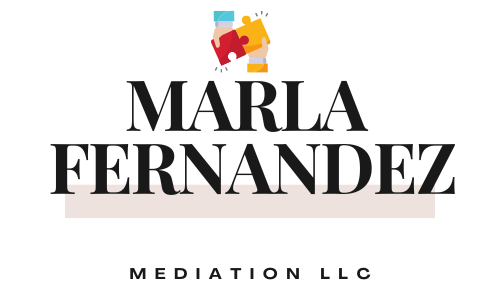“Proposition HH: A Closer Look at the Weaknesses and Flaws”
Proposition HH: A Closer Look at the Weaknesses and Flaws

Marla Fernandez
In the upcoming November election, Coloradans will be presented with Proposition HH, a ballot question referred to voters by the state legislature. The proposal centers around using Taxpayer’s Bill of Rights (TABOR) dollars for property tax relief, an issue that has garnered significant attention and debate. While Governor Jared Polis and economist Arthur Laffer argue for the “yes” side, Representative Rose Pugliese and Michael Fields advocate for the “no” side. It is imperative for voters to consider the weaknesses and flaws of Proposition HH before making a decision at the polls.
The key element of Proposition HH is the request to raise the Referendum C cap by 1% and retain this additional revenue for a decade. This increase is projected to yield approximately $167 million annually. These funds are intended to be directed towards local governments to shield them from declines in property tax revenue while also bolstering K-12 education funding.
One aspect that raises concerns is the temporary assessment rate reduction for residential property classes. While it may seem beneficial on the surface, it needs to be carefully examined. Proposition HH promises to reduce valuations and, consequently, property taxes on owner-occupied, senior, and multi-family housing. This reduction will amount to $50,000 in 2023, followed by $40,000 from 2024 to 2032. The issue with this approach is the potential imbalance it may create in the distribution of property tax benefits, which could disproportionately favor certain groups while not providing equal relief to all property owners.
Additionally, a critical point of contention lies in the equalized TABOR refund that taxpayers would receive should Proposition HH pass. While proponents argue that taxpayers would receive a one-time refund, critics argue that the system still lacks fairness and transparency. The proposed equalized TABOR refund provides each single filer with $833, and joint filers would receive $1,666, based on the latest state estimate. However, this approach does not consider the varying financial situations of individuals and families, leading to discrepancies in benefits.
Furthermore, if voters reject Proposition HH, the state would revert to the existing six-tier refund mechanism, determined by income levels, in 2024. Critics argue that this approach is more equitable, as it tailors the refund to income, ensuring that those who may need financial relief the most receive a larger share.
In conclusion, while Proposition HH aims to address critical issues concerning property tax revenue and education funding, it is crucial for voters to weigh the proposal’s weaknesses and flaws. A more balanced and fair approach to property tax relief may be necessary, one that provides relief to all property owners while considering individual financial circumstances. This decision will significantly impact Colorado’s financial landscape and must be made with careful consideration. As the debate unfolds, Coloradans should keep these concerns in mind when casting their votes on Proposition HH.
In the upcoming November election, Coloradans will be presented with Proposition HH, a ballot question referred to voters by the state legislature. The proposal centers around using Taxpayer’s Bill of Rights (TABOR) dollars for property tax relief, an issue that has garnered significant attention and debate. While Governor Jared Polis and economist Arthur Laffer argue for the “yes” side, Representative Rose Pugliese and Michael Fields advocate for the “no” side. It is imperative for voters to consider the weaknesses and flaws of Proposition HH before making a decision at the polls.
The key element of Proposition HH is the request to raise the Referendum C cap by 1% and retain this additional revenue for a decade. This increase is projected to yield approximately $167 million annually. These funds are intended to be directed towards local governments to shield them from declines in property tax revenue while also bolstering K-12 education funding.
One aspect that raises concerns is the temporary assessment rate reduction for residential property classes. While it may seem beneficial on the surface, it needs to be carefully examined. Proposition HH promises to reduce valuations and, consequently, property taxes on owner-occupied, senior, and multi-family housing. This reduction will amount to $50,000 in 2023, followed by $40,000 from 2024 to 2032. The issue with this approach is the potential imbalance it may create in the distribution of property tax benefits, which could disproportionately favor certain groups while not providing equal relief to all property owners.
Additionally, a critical point of contention lies in the equalized TABOR refund that taxpayers would receive should Proposition HH pass. While proponents argue that taxpayers would receive a one-time refund, critics argue that the system still lacks fairness and transparency. The proposed equalized TABOR refund provides each single filer with $833, and joint filers would receive $1,666, based on the latest state estimate. However, this approach does not consider the varying financial situations of individuals and families, leading to discrepancies in benefits.
Furthermore, if voters reject Proposition HH, the state would revert to the existing six-tier refund mechanism, determined by income levels, in 2024. Critics argue that this approach is more equitable, as it tailors the refund to income, ensuring that those who may need financial relief the most receive a larger share.
In conclusion, while Proposition HH aims to address critical issues concerning property tax revenue and education funding, it is crucial for voters to weigh the proposal’s weaknesses and flaws. A more balanced and fair approach to property tax relief may be necessary, one that provides relief to all property owners while considering individual financial circumstances. This decision will significantly impact Colorado’s financial landscape and must be made with careful consideration. As the debate unfolds, Coloradans should keep these concerns in mind when casting their votes on Proposition HH.
